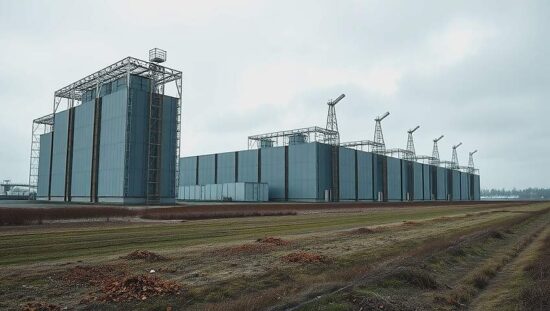EnBW, one of Germany’s largest energy companies, is proposing the redevelopment of the decommissioned Neckarwestheim nuclear power plant site in Baden-Württemberg into a major artificial intelligence (AI) data center. The initiative, championed by EnBW CEO Georg Stamatelopoulos, raises complex questions about energy policy, industrial strategy and the implications of concentrating such intensive computational power within a single location.
Stamatelopoulos highlighted the site’s existing advantages – a substantial power grid connection already in place, originally designed to serve the now-defunct nuclear facility and robust fiber optic infrastructure. This infrastructure is considered crucial given the immense energy demands of AI data centers, which are increasingly straining national power grids and prompting debate about sustainable energy sources.
The proposal aligns with the European Union’s ambitious plan to foster the development of five large-scale AI data centers across the bloc. This EU push is viewed as vital to maintaining Europe’s competitiveness in the global AI race, currently dominated by the United States and China. EnBW’s offer to make the Neckarwestheim site available to potential investors seeking to participate in the EU tender competition signals a concerted effort by German industry to capitalize on this opportunity.
However, the move isn’t without potential pitfalls. The concentration of a data center of this magnitude presents heightened security risks, requiring careful consideration of cyber defenses and physical protection. Moreover, the sustainability credentials of the data center and the source of its power, will be heavily scrutinized. Simply leveraging existing infrastructure from a decommissioned nuclear plant does not inherently guarantee environmentally responsible operation. Critics will likely demand a commitment to renewable energy sources to power the facility and mitigate potential criticisms regarding “greenwashing.
Several prominent German companies, including Deutsche Telekom and the Schwarz Group (owners of Lidl and Kaufland), have already been identified as potential bidders for the EU tender. The race is now on to secure funding and navigate the regulatory landscape as Germany seeks to remain a key player in the burgeoning AI revolution, but also confronts the challenging task of reconciling industrial ambition with environmental responsibility and robust security protocols. The repurposing of a former nuclear site offers a compelling narrative, but demands rigorous oversight to ensure it contributes to a truly sustainable and secure future.





